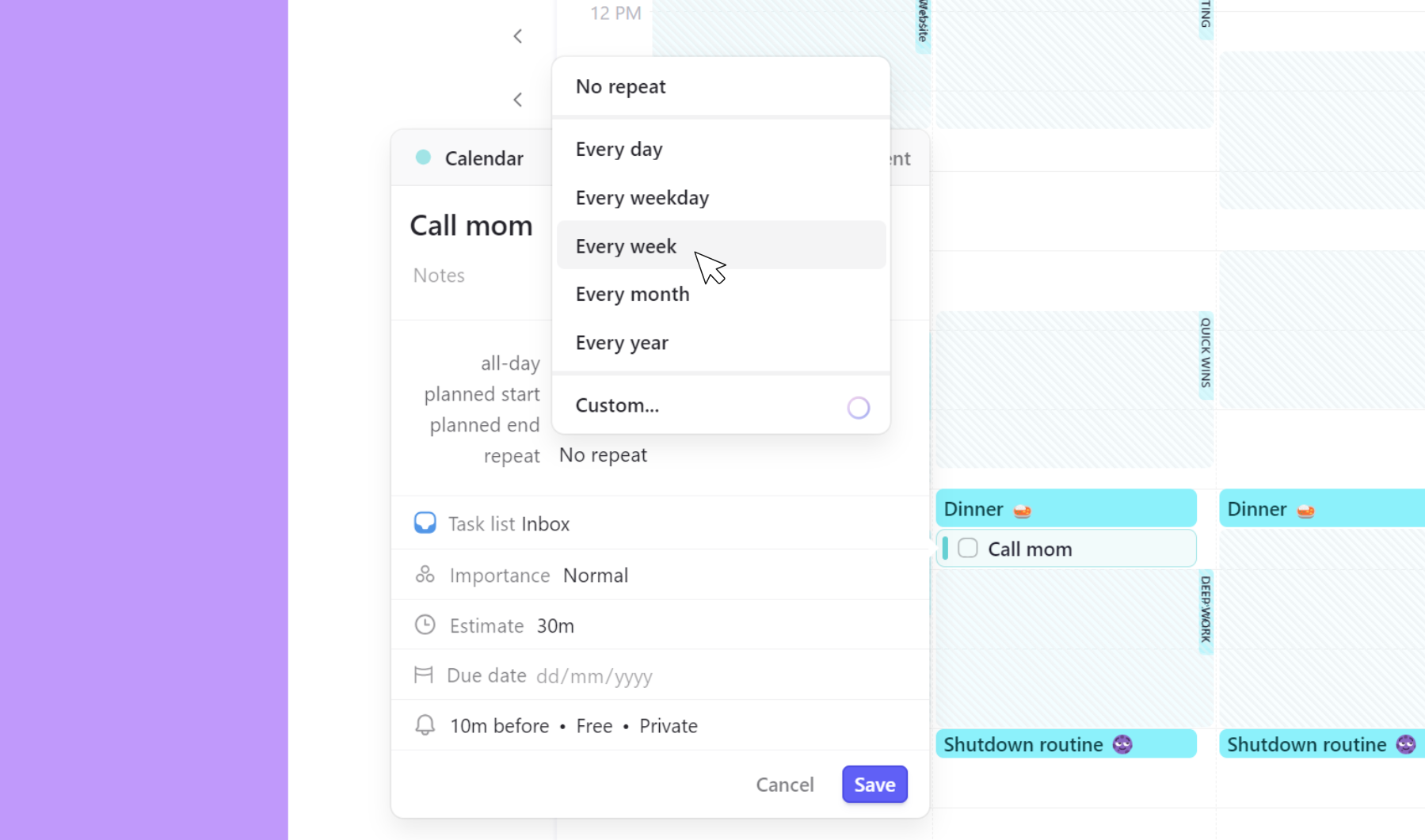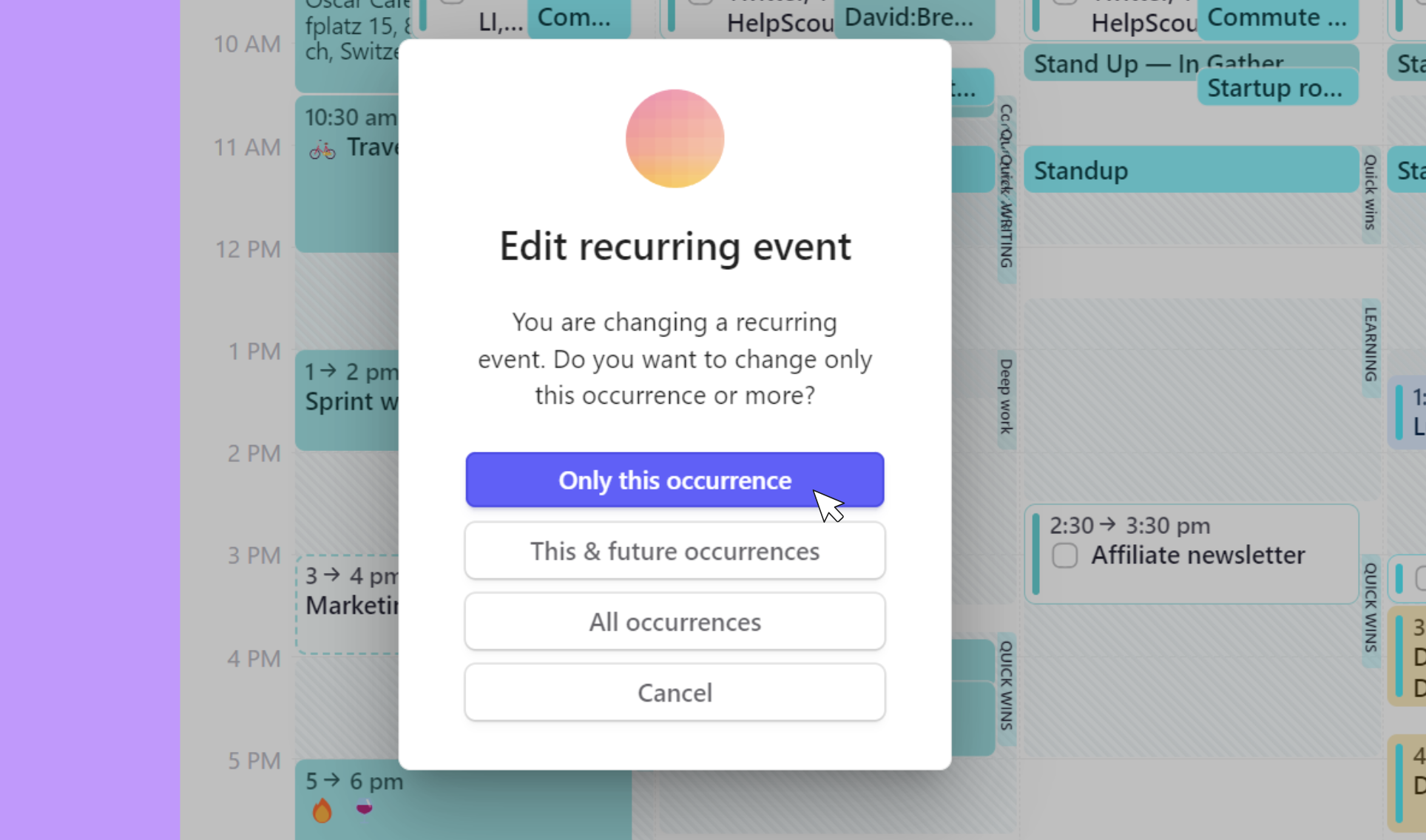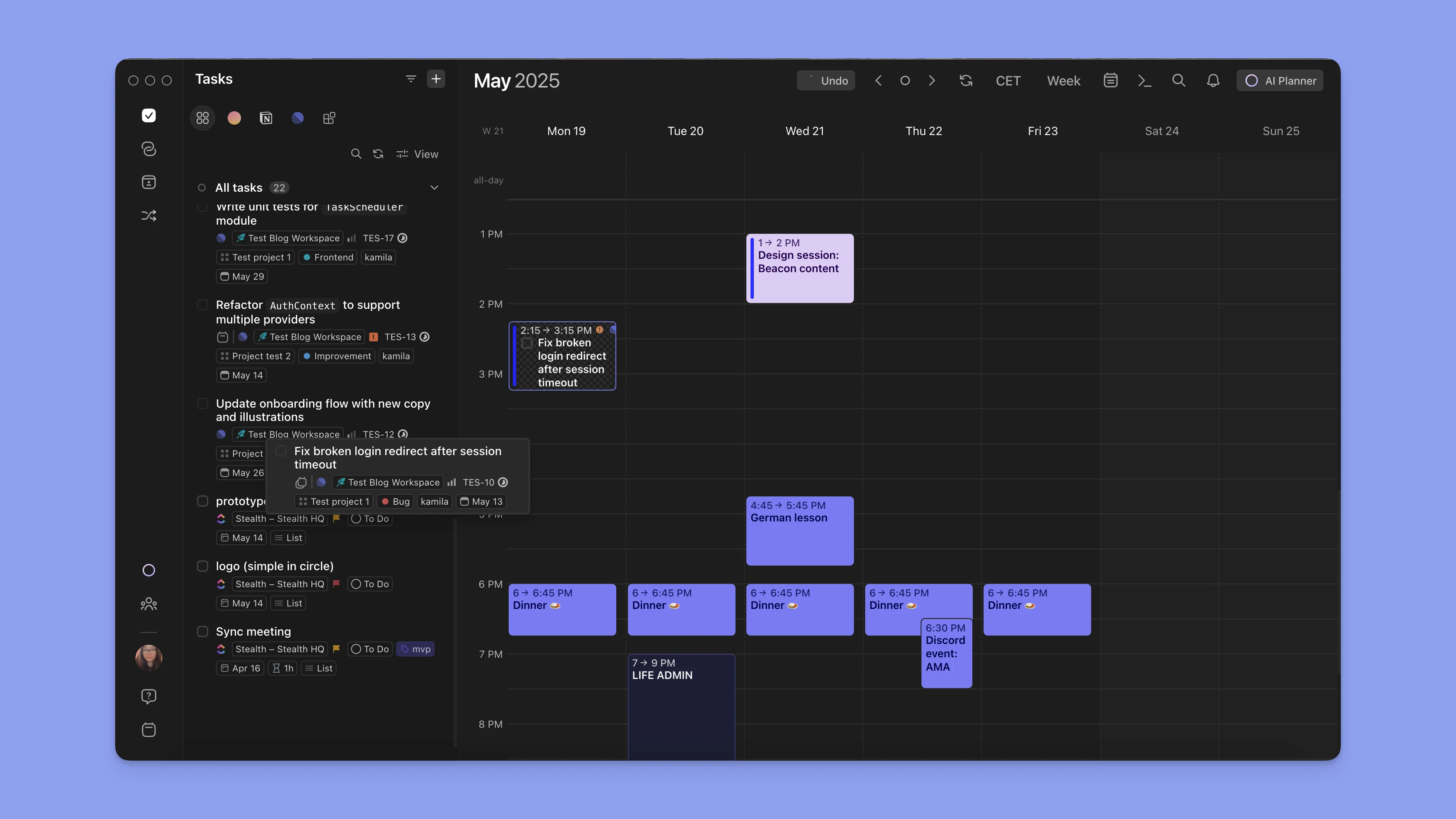You likely have tasks that repeat on a regular basis and at predictable time intervals. Whether it’s monthly reporting, bi-weekly sprint planning, daily zeroing your inbox, or simply remembering to call Mom on Sundays, you can create custom recurrence patterns for tasks directly in your calendar.
Note that time blocking and scheduling tasks in your calendar is a premium feature and is available with a Morgen Pro subscription.
Setting up recurring tasks in Morgen
Since recurring tasks are things you need to make time for each time they come up, recurrence patterns can only be created from a task scheduled in your calendar.
To add a task to your calendar, either drag one from your task list, click on a space in the calendar to open a new scheduled task, or use the command bar. (Learn more about creating scheduled tasks in this guide.)

Once you’ve created your task, click on next to the repeat property in the task widget. This will open the recurrence menu, where you can:
- select a recurrence pattern from those listed.

- create a custom recurrence pattern. Describe the frequency you want your task scheduled, and our LLM will translate it into a pattern calendar providers can understand.

Some of the most common custom recurrence patterns are:
- every first day of the month
- every wed in December
- every mon, wed, fri
- every second mon for 3 times
The LLM can also interpret multiple languages and correct for typos.
Rescheduling a recurrent task
You can always reschedule an instance or all instances of recurrent tasks. Simply drag and drop the scheduled task elsewhere in your calendar or open the task details to update the timing.
You will then be asked whether all instances of the task or just this one should be updated.

Managing notes
Each instance of a recurrent task is considered a distinct entity. This means that if you have notes in one instance, those notes will not be applied to other instances. In this way, you can add specifics for that particular session, and they won’t copy elsewhere.
Similarly, when you mark one instance as complete in your calendar, future instances will remain unchecked so you know when it’s time to tackle those tasks again.
Some people like to have a template for each recurrent task. If that is the case, we recommend creating a task in your task list with the template notes that you can refer to anytime. If you have a lot of these types of tasks, it might help to have a list in Morgen tasks called Recurrent Task Templates.
Note about tasks from integrations
Recurrent tasks can only be created for Morgen tasks. At this time, we don't receive information about recurrence patterns from integration sources since rather than sync a task with a recurrence pattern, popular integrations such as Todoist and Notion create a new task when one instance is completed. When you mark a task complete in Morgen, those sources will then generate a new task you can schedule in your calendar.
.png)
.png)


